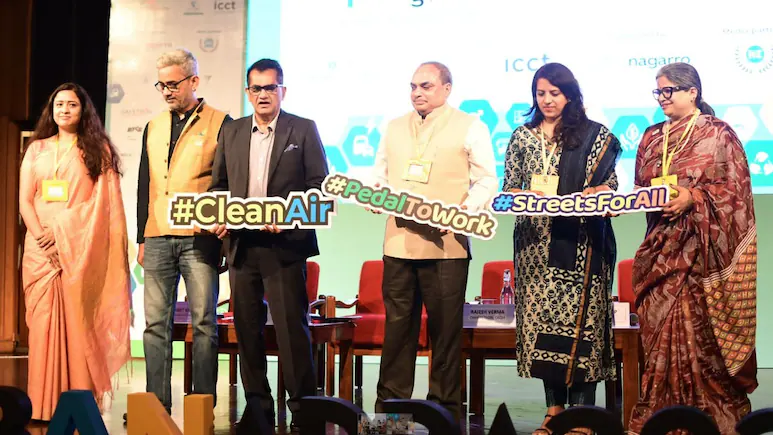In a powerful message underscoring the urgency of environmental action, G20 Sherpa Amitabh Kant has called for an accelerated shift towards electric mobility to address the alarming pollution levels in Delhi and other major Indian cities. Speaking at a recent event on sustainable urban development, Kant emphasized that electric vehicles (EVs) are not just a futuristic aspiration but a present-day necessity to ensure clean air and sustainable growth.
Delhi, consistently ranked among the most polluted cities in the world, has seen hazardous air quality levels, particularly during winter months. The primary contributors include vehicular emissions, construction dust, industrial pollutants, and stubble burning in surrounding states. According to the Central Pollution Control Board (CPCB), vehicular emissions account for nearly 40% of Delhi’s air pollution.
Kant, India’s former CEO of NITI Aayog and current G20 Sherpa, urged stakeholders—including the government, industry, and civil society—to embrace electric mobility without delay. “Go electric, go now. The time to act is not tomorrow, it is today,” Kant asserted, reiterating India’s commitment to achieving net-zero emissions by 2070.
The message aligns with India’s broader policy push toward sustainable transport, as reflected in schemes like the FAME II (Faster Adoption and Manufacturing of Hybrid and Electric Vehicles in India), Production-Linked Incentive (PLI) for battery manufacturing, and state-level EV policies. Delhi, Maharashtra, and Tamil Nadu are among the states that have taken progressive steps, offering subsidies and infrastructure support for EV adoption.
Industry experts welcomed Kant’s remarks, highlighting how EVs can reduce dependence on fossil fuels, cut greenhouse gas emissions, and offer long-term economic savings. India’s EV market has shown promising growth, with sales of electric two-wheelers, cars, and buses witnessing a significant uptick in recent years. In FY 2023-24, India recorded over 1.3 million EV registrations, indicating rising consumer awareness and policy impact.
However, challenges remain. Limited charging infrastructure, high upfront costs, and supply chain issues, especially for critical components like lithium-ion batteries, have hampered the mass adoption of EVs. Kant acknowledged these hurdles and stressed the need for public-private partnerships, innovation in battery technologies, and local manufacturing to overcome them.
The Centre is also encouraging municipal corporations to electrify public transport fleets. Kant cited the example of Delhi Metro and state-run electric buses as benchmarks for reducing urban pollution through clean transit alternatives.
Conclusion:
Amitabh Kant’s “Go Electric, Go Now” appeal serves as a clarion call for India to confront its environmental crisis with bold, immediate actions. As Delhi continues to grapple with deteriorating air quality, the transition to electric mobility emerges not just as a policy objective but as a moral and health imperative. By fostering collaboration, innovation, and awareness, India can lead the global shift toward a greener and cleaner future.



